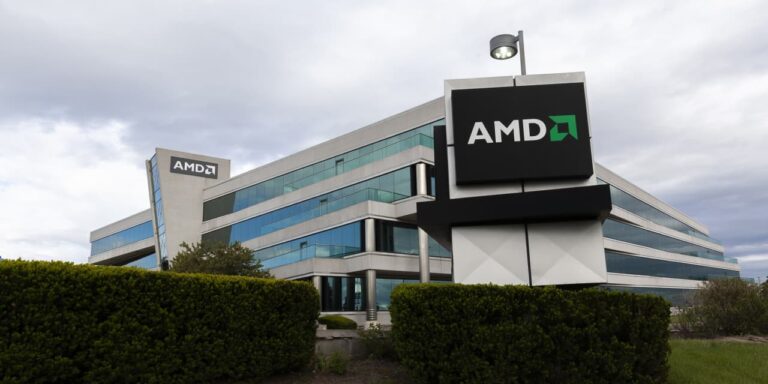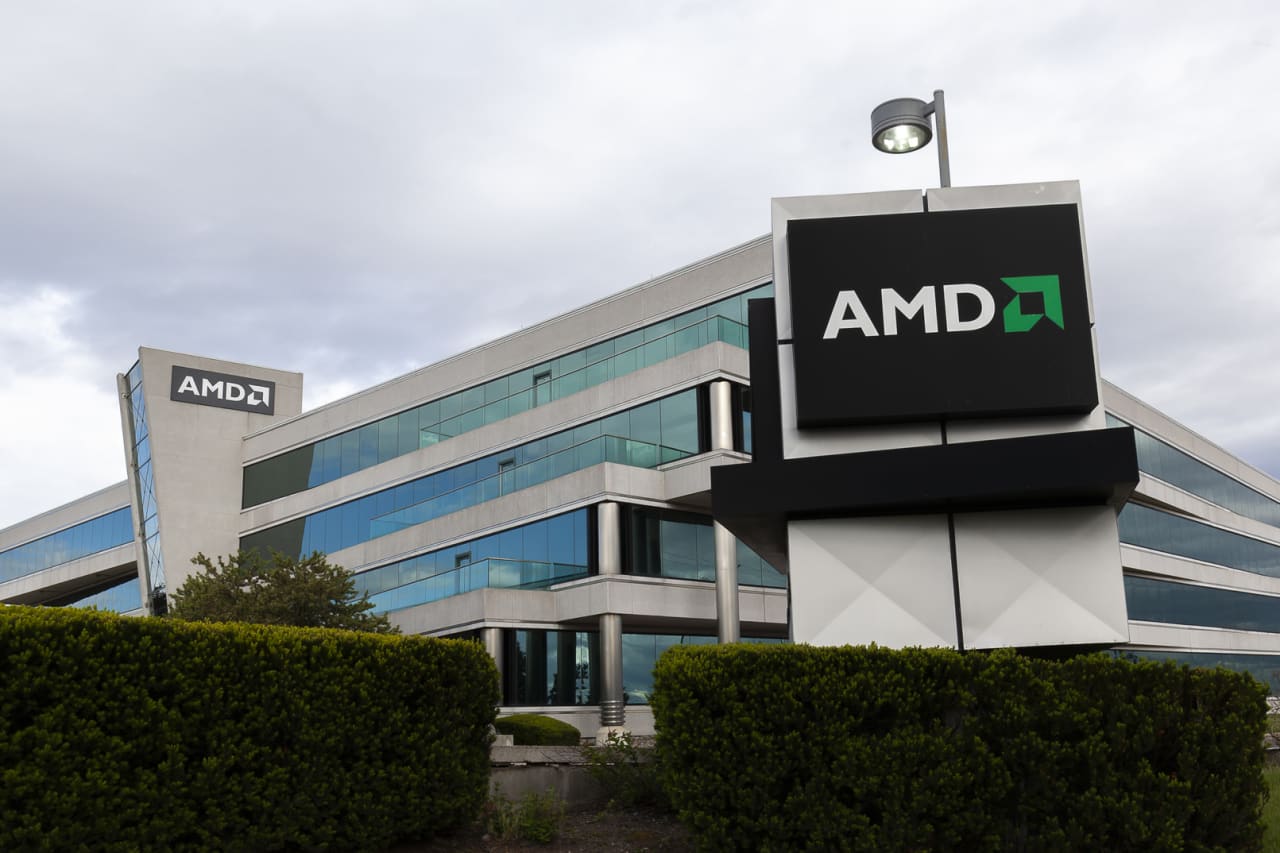Nvidia Corp. dominates the market for chips used to power the artificial-intelligence frenzy, but Advanced Micro Devices Inc. is jockeying for a bigger piece of that pie.
The company got an endorsement of sorts late Friday from a high-profile figure, as Tesla Inc. Chief Executive Elon Musk followed up to a post about his Nvidia
NVDA,
spending plans for this year by sharing that the company also had plans to buy chips from AMD
AMD,
In general, enthusiasm seems to be building for AMD’s MI300 AI accelerator, so much so that forecasts need some recalibrating, according to Susquehanna analyst Chris Rolland. While AMD projected three months back that total data-center revenue from graphics processing units would exceed $2 billion in 2024, he thinks that number needs to go up to “at least” more than $3 billion when AMD reports results Tuesday afternoon.
“On average, investors we speak with are targeting closer to $6 billion, with some suggesting even higher,” he wrote Monday, while upping his price target on the stock to $210 from $170. “We believe much of this MI300 upside is now baked into the stock.”
Read: Missed the boat on AMD’s stock surge? Why this analyst says you’re not too late.
The “narrative and update” around M1300 should be the “swing factor” of AMD’s report, Rolland said, even as he expects “generally in-line results” for the latest quarter and a “slightly disappointing” outlook for the current one.
BofA Securities analyst Vivek Arya took a similar view, noting that some sort of miss with the first-quarter outlook “is already expected” after Intel Corp.
INTC,
gave its own weak forecast last week.
Read: Intel’s stock sees worst plunge in more than three years
“We think [the] focus of [the] call will be AMD’s MI300 AI accelerator expectations, where we expect management to qualitatively or quantitively raise [calendar 2024] expectations above prior $2 billion and more in line with consensus in the $3-$3.5 billion range,” he wrote.
He noted that each 1% share of the accelerator market that AMD comes to hold would translate to 16 cents in 2025 earnings per share, by his math. “While AI presents a large opportunity, AMD faces tough incumbents [Nvidia] and customer chip partners ([Broadcom Inc.
AVGO,
Marvell Technology Inc.
MRVL,
], etc), so while we can see AMD share head towards 5-10% from <5%, we are skeptical of it crossing 10% yet,” Arya added.
He upped his price objective on AMD shares to $195 from $165 in a recent note.
Bernstein analyst Stacy Rasgon commented that AMD “has been two stories” in one lately, and could remain that way.
“[G]uidance was soft every quarter last year, and numbers stepped down markedly, and yet the stock more than doubled as they grabbed at the burgeoning AI narrative,” Rasgon wrote.
Opinion: Intel’s stock plunge shows that Wall Street still hasn’t learned its lesson on AI hype
“This could continue to work for them for now, frankly, as while we suspect core fundamentals remain a bit out over their skis, the AI narrative is likely still on management’s side, and AMD was smart in how they set expectations for growth (suggesting ‘more than $2B’ leaves plenty of room for the number to probably go up for now),” Rasgon continued.
While others are more bullish on the stock, Rasgon recently stuck with his $120 target price, calling AMD “by far the most expensive of the AI semiconductor stocks” at about 46 times forward earnings per share.
Overall, analysts expect AMD to post 77 cents in adjusted earnings per share for the quarter on revenue of $6.1 billion. The top line is anticipated to grow 9% from a year before.
The FactSet consensus calls for 39% growth in data-center revenue, up $2.3 billion, along with 71% growth in client revenue, to $1.5 billion. But analysts also model a 25% decline in gaming revenue, to $1.2 billion, and project that embedded revenue will come in at $1.1 billion, down 24%.



